Explore the Best AI Image Gallery

The AI Canvas: Exploring the Ethical Frontiers of Generated Media
Artificial intelligence (AI) is rapidly transforming various aspects of our lives, and the realm of media creation is no exception. From generating realistic images and videos to composing music and writing text, AI-powered tools are blurring the lines between human and machine creativity. This technological advancement presents both exciting opportunities and complex ethical challenges that demand careful consideration.
The creative industry stands at a crossroads as AI-generated media enters the mainstream. On one hand, these tools offer unprecedented possibilities for artists, designers, and content creators to enhance their workflows, experiment with novel concepts, and push the boundaries of artistic expression. Imagine musicians effortlessly composing intricate melodies, writers crafting compelling narratives with AI assistance, or filmmakers generating stunning visuals without the need for expensive equipment.
However, the proliferation of AI-generated media also raises profound ethical questions that require careful navigation. One of the most pressing concerns is the potential for misuse and manipulation. Malicious actors could leverage these tools to create deepfakes—highly realistic fabricated videos or audio recordings—for purposes such as spreading misinformation, damaging reputations, or inciting social unrest.
Another significant ethical consideration is the impact on human creativity and employment. As AI-powered tools become more sophisticated, there are concerns that they could displace human artists and designers, leading to job losses and a devaluation of creative labor. Its crucial to strike a balance between harnessing the power of AI and ensuring that human creativity remains at the core of the creative process.
Moreover, issues of copyright and intellectual property rights arise when AI systems generate original content. Who owns the rights to AI-generated works—the creators of the AI algorithms, the users who input prompts, or the AI itself? Establishing clear legal frameworks is essential to address these complexities and protect the interests of all stakeholders.
Navigating the ethical landscape of AI-generated media requires a multi-faceted approach involving collaboration between policymakers, industry leaders, researchers, and the general public. Open dialogue and transparent decision-making are crucial for ensuring that AI technologies are used responsibly and ethically in the creative domain.
Several potential solutions can help mitigate the risks and harness the benefits of AI-generated media:
- Develop robust guidelines and regulations for the development and deployment of AI tools in creative industries.
- Promote transparency and accountability by requiring disclosure when AI is used in the creation of media content.
- Encourage education and awareness campaigns to inform the public about the capabilities and limitations of AI-generated media.
- Foster collaboration between AI developers, artists, and ethicists to ensure that AI technologies are aligned with human values.
The future of creative expression in the age of AI is brimming with both promise and peril. By embracing a proactive and ethical approach, we can harness the transformative power of AI while safeguarding the integrity of human creativity and ensuring that technology serves humanitys best interests.


](https://images.ai-img.art/thumbnails/150/5b3fca49762c8c532ff70f250ca3b5900bac75be98d6c82f8f7a220465ad534a.webp)

](https://images.ai-img.art/thumbnails/150/9ad2f4d771346182f4c9b6d1712edfd0b6b776f37b75dac606a8e03b1bd2dc47.webp)
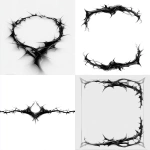
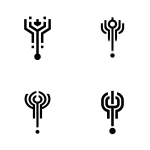






](https://images.ai-img.art/thumbnails/150/c04f7210bb9d35279503ff64ad44a9826d6909838f777fb1edd0fdece2ac7c70.webp)
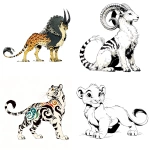

](https://images.ai-img.art/thumbnails/150/03de477e462377e62b34fea23ab1cbf6d4557f4077cc8bed9f23388af1200721.webp)
](https://images.ai-img.art/thumbnails/150/4d725f4d5380eb583bdebf0aad4c789acd6782398b4050f01f350a939dd4c2af.webp)
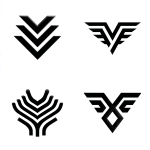





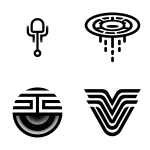
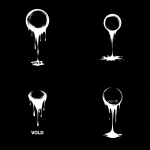


](https://images.ai-img.art/thumbnails/150/f1cbba604c7411267acd95acaa4746a5ee006a25ade5e596a9501884b384e1dd.webp)
](https://images.ai-img.art/thumbnails/150/16ec42833d204af37c75cc776a794c54661cbfe1061c899680a4976a7f74cd51.webp)

](https://images.ai-img.art/thumbnails/150/cc8f7b8338e849e1e11a902ac51eda96c8f710e5d829c5b4d57b56fa05d28e95.webp)

](https://images.ai-img.art/thumbnails/150/78a1311461ccc4b60dd1430d56ee04b3b5612a3145aef0a32196168d5489fdf3.webp)

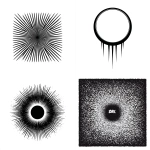
](https://images.ai-img.art/thumbnails/150/45d068cbdc39002eccc21e2169438a3c142426219fda8c9e027c536cdf66811e.webp)

](https://images.ai-img.art/thumbnails/150/f9928aee79da6b2028ac7a7129ac30e6475a85d5300661776fde267c2da839ab.webp)

](https://images.ai-img.art/thumbnails/150/bbf691f1c69e4801062c68d0435463c5bf76258e3984fbe3cc25e9e46174cf88.webp)
](https://images.ai-img.art/thumbnails/150/89d86a1c20e8844b6d4ce23cf0e6ae10c19923617b6be16cac5d3cc513bf9c4e.webp)
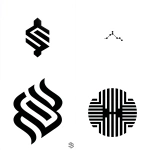

](https://images.ai-img.art/thumbnails/150/55e9c8ac48f7ca1311ec4a843e2616aa87c73e2217901ac138d198afb0b4f1db.webp)

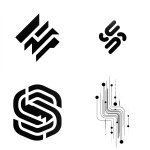
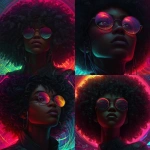
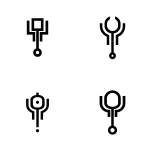
](https://images.ai-img.art/thumbnails/150/8884a7a8953b23d6c882f33524c10e09d320bbce4f305f2c7e79c402d82c1760.webp)